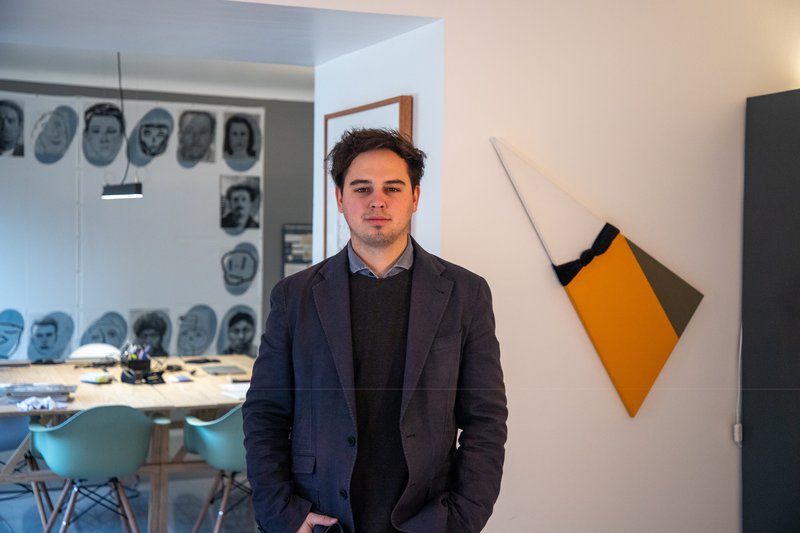Antonio Echeverría

Conference Report. November 2023.
During the days of the CIMAM 2023 Conference in Buenos Aires, urgent issues were raised regarding the bonds between art institutions and the communities that host and transform them. These issues, even though they were charged with a contingency evidently rooted in the problems of our shared present, were also loaded with a very high degree of atemporality. During his presentation, Simon Njami outlined the possibility of museums being places that host all times and all places. Or at least, that they had the possibility to do so. Elvira Espejo, before Njami, referred to listening and linguistics as strategies to build communities around institutions, a "mutual nurturing" that allows us to approach the particular past that certain institutions must feed, safeguard, and keep alive.
Pablo Lafuente, Maria Hélène Pereira, and Marian Pastor Roces continued thinking about the forces of memory through fire, territory, and even the possibilities that the kingdom of fungi gives us to think about our possibilities. The answers are obviously varied and complex; or rather, there are more questions than solutions to issues.
The important thing is that during these days dedicated to social agencies, ethics, and heritage, very few simplistic and reductionist visions of these issues were presented. Rather, we listened and felt like navigating in opaque waters, at times stormy and unknown, but with the hope of building a common sensibility inclined to delve into complex issues, avoiding trying to understand each other from slogans or easy mottos. In the midst of the general discussions proposed by CIMAM, a series of casual encounters with colleagues from different parts of the world also took place, where we were able to share our own experiences, recognize each other's work, imagine projects, and even, and more importantly, talk about practical issues that afflict us on a daily basis in our institutional work. Being awarded a Travel Grant to attend this meeting is undoubtedly fundamental for the development of my professional career. I look forward to meeting many of my colleagues again and continuing to cultivate the relationships that are born from this meeting. Thank you very much CIMAM for this great opportunity!
Bio
Antonio Echeverría is a contemporary art curator and researcher based in Santiago, Chile. Born in 1999, from an early age became interested in art and began his studies at the School of Art of the Pontificia Universidad Católica de Chile in 2015. In 2016 he participated in the pre-college program in Art History at Pratt Institute in New York.
In 2018, he formally enrolled in the Bachelor's Degree in Art at the Pontificia Universidad Católica de Chile and later continued his studies at the Institute of Aesthetics of the Faculty of Philosophy at the same University. During his academic career, he had the opportunity to do several internships in renowned institutions such as Ch.Aco, the Fava Foundation and the Museum of Modern Art in Buenos Aires, where he worked as a research intern in the area of collection.
Antonio has also had the experience of working as curatorial assistant in the exhibition "Of bastardisms and apparitions", curated by Paula Solimano at Macchina Gallery. He has also been co-curator of the group exhibition "Mi ropa, la de otros, la de muchos", which exhibited works by artists such as Sandra Gamarra, Alexander Apóstol, María Abaddon, among others, and of the exhibition "Volverse cosa" by the prominent Argentine artist Diego Bianchi, presented at the art space Il Posto in Santiago de Chile. Also, he has had the opportunity to curate solo exhibitions of other artists in the same city.
Since the beginning of 2022, Antonio holds the position of Director of Il Posto Documentos, Il Posto's Research and Documentation Center. This private, non-profit art space is dedicated to the study, preservation and exhibition of contemporary Latin American art in Santiago, Chile, through its collection. As Director, Antonio is in charge of various tasks, such as the general coordination of the institution, the research program, the exhibition program, the coordination of the collection and public programs. In addition, he participated in the cataloguing of the archive Il Posto Documentos, which reunites fundamental documents of Chilean art from the 1980s.
In 2022 he coordinated the two-part exhibition entitled "Y de pronto ya no había ya no más orilla", curated by Miguel A. López and Gala Berger at Il Posto. This exhibition featured the work of numerous artists, including Seba Calfuqueo, Carlos Motta, Regina José Galindo, Johanna Unzueta, Naufus Ramírez Figueroa, Wynnie Mynerva, Christian Salablanca, Sheroanawe Hakihiiwe, Carlos Leppe and Patrick Hamilton.
In addition to his work at Il Posto, Antonio has shared his knowledge and perspectives in the field of contemporary art through publications in media such as Artishock. His interests span a wide range of topics, including the exploration of new forms of institutionalism for art, the analysis of contemporary art genealogies, the narratives associated with modernizing processes in Latin America, and decolonial thinking associated with art collections. He also is interested in politics, ecology and history, and examines the critical frameworks from which contemporary art is analyzed.
He is distinguished by his innovative approach and his interest in imagining forms of transformation within art institutions. His ability to coordinate and curate exhibitions, as well as his ability to interview prominent artists and curators, demonstrate his commitment to the promotion and dissemination of Latin American contemporary art. His desire to imagine new forms of collectivity through art reflects his deep commitment to the cultural and social field, as well as his ability to generate meaningful discussions and dialogues through his curatorial practice.